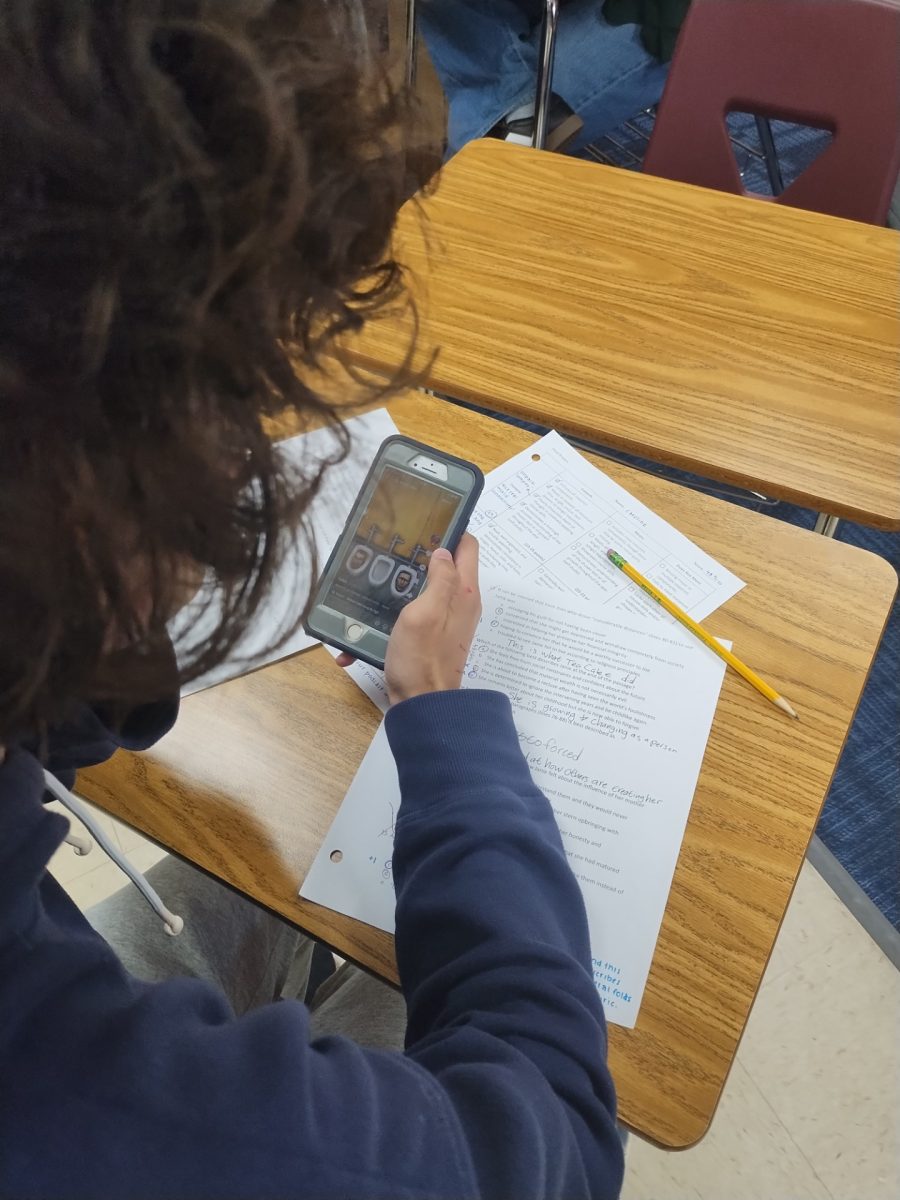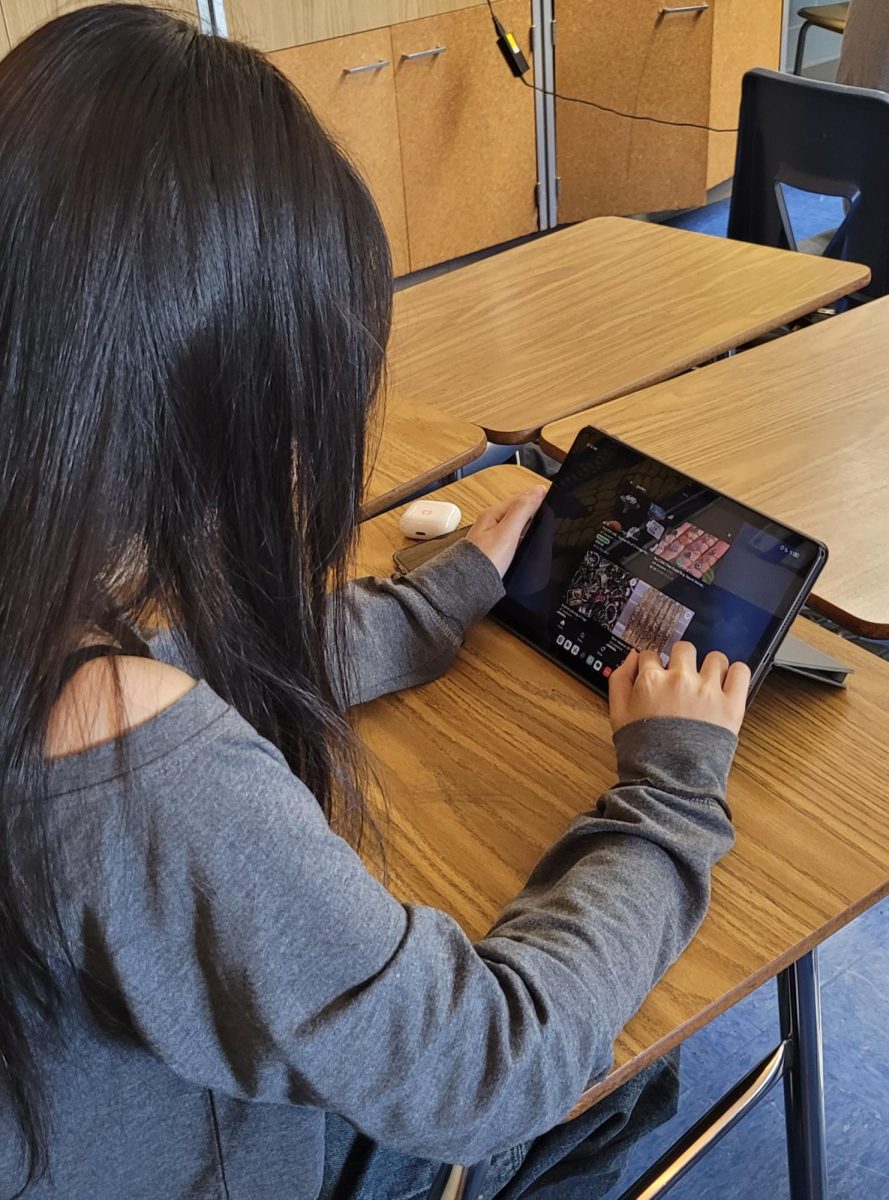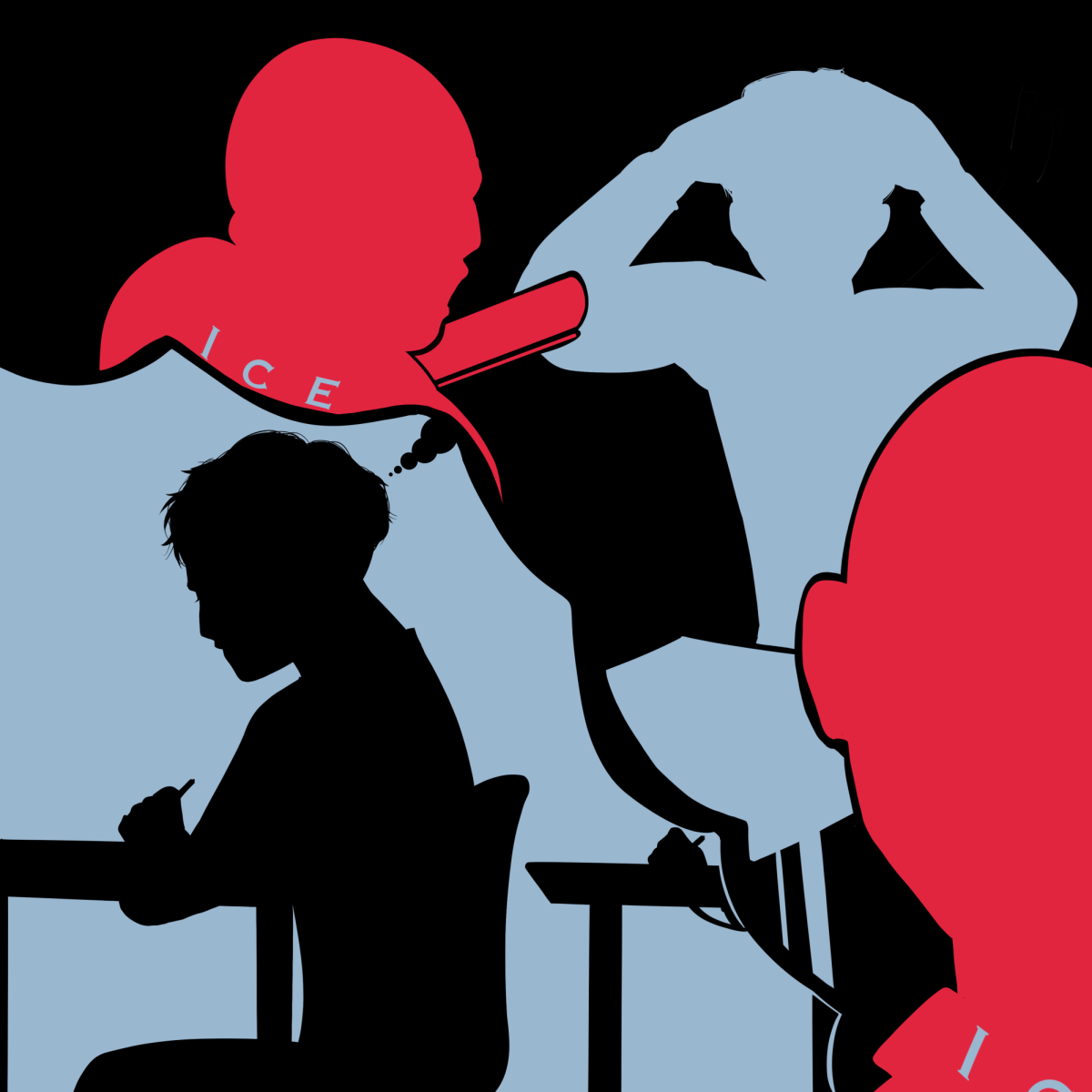Is our school’s current phone policy too lenient? Do we even have one? Some of the faculty at Columbia Heights High School (CHHS), and even some of the students, are confused and frustrated by the unclear answers to these questions.
Excessive phone usage during class time is more of a rising issue than ever before. Some teachers complain openly about students being distracted during their lessons, which has led to stricter individual classroom policies in some cases. Current policies around the school span the spectrum: cell phones must be put away for the whole class period, phones are only allowed during work time or students are responsible for being off their phones when needed and getting work done on time without teacher intervention. The consequences for infractions vary too: some teachers take phones, some ask for them and send a student out if they refuse and others just ignore the issue, try to resolve it through discussion or call/email home. It seems like there isn’t a concrete schoolwide policy on phones, but should there be?
Unlike Columbia Heights High School, the Columbia Heights Public Schools (CHPS) middle school Columbia Academy (CA) has a very strict policy that only allows student phone usage once school has ended, and some CHHS teachers have said directly to students that the high school would benefit from such a firm approach. Teachers work hard to make their lessons to the benefit of students, but students’ refusal to look up from their phones not only hinders their learning — it’s also a sign of disrespect.
A few teachers have openly commented how they believe phones in class not only cause a distraction, but they also can be a risk for cheating in class. Taking pictures of assignments and sending them to friends is a common occurrence. Privacy is another big concern, as we are in an age where everyone has a cell phone and access to the internet. Taking pictures and videos of other students or teachers without their permission happens too often, which takes away from the comfortable and safe classroom environment teachers try to make for students.
It makes sense why teachers might have a problem with excessive phone usage, but is a complete ban the best solution? Students don’t just use their phones to scroll through social media. They also use them to keep up with their studies and activities in school when a Chromebook isn’t available, communicate with parents about pickup times and stay up to date with current events, just to name a few.
Restricting phone access unilaterally not only takes these conveniences (and sometimes, necessities) away from students, but it also prevents them from making their own decisions and learning, sometimes the hard way, how to be responsible for their education. High school students are old enough to figure out when they should pay attention to class or use their phones. If they do choose to spend their class time on their phone, it’s their responsibility to get their work done.
High school is where a teenager spends the majority of their waking life, even more so than their homes. They meet so many people who have a huge impact on them and how they grow, so aside from documenting, note-taking, researching, magnifying, scanning QR codes and so much more, part of our education should be in how to leverage technology to our benefit — not punish us for an addiction that even many adults have.
Phones have so many negatives and positives when it comes to teenage life — this seems inarguable. However, teachers and students alike deserve to have their needs met and deserve respect in the classroom without the unnecessary action of a complete ban and the confusing, inequitable system of so many different policies and consequences across multiple classrooms.
And with students becoming more and more used to punishments like confiscation, getting sent to a dean or scolding from a teacher, any kind of schoolwide policy based on negative consequences will likely only cause more distrust and disharmony between staff and students. Perhaps students can ultimately only develop healthy relationships with their phones when educators teach them how with kindness and respect.









